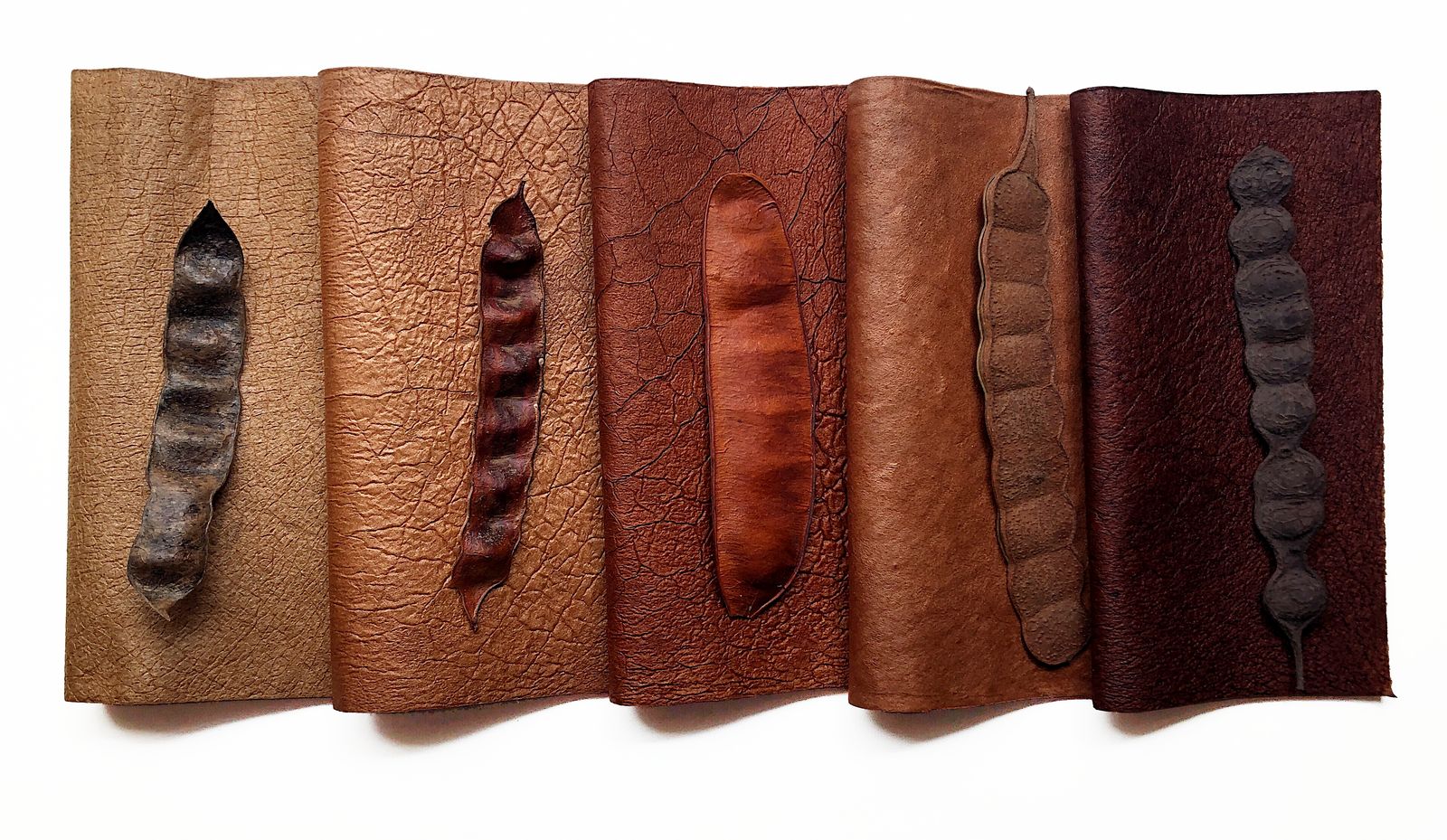

Angico biotissue was developed entirely from native Brazilian plants (image: Mabe Bio)
Startup supported by FAPESP develops promising sustainable solution from native flora; angico biotissue will be presented at VivaTech in France.
Startup supported by FAPESP develops promising sustainable solution from native flora; angico biotissue will be presented at VivaTech in France.

Angico biotissue was developed entirely from native Brazilian plants (image: Mabe Bio)

By Roseli Andrion | Agência FAPESP – Science often stems from scientists’ restlessness. At the Brazilian startup Mabe Bio, this was no different. Fashion designer Marina Belintani’s discomfort became the fuel for innovation. Experienced in the materials and fashion market, she was persistently bothered by the growing amount of waste produced by an industry known for its high environmental impact.
This dissatisfaction led her to pursue a master’s research project at the Royal College of Art in London, England, where she dedicated herself to the study of biomaterials. Seeking an opportunity for transformation, she began investigating sustainable alternatives based on Brazilian biodiversity.
Motivated by this, the researcher participated in the residency program at Antler (a global venture capital fund for early-stage companies), where she met the entrepreneur Rachel Maranhão. “I immediately fell in love with Marina’s research and realized the transformative potential of the technology that was being developed,” says Maranhão, a business master’s student and CEO of Mabe. Her strategic vision and entrepreneurial eye complemented Belintani’s technical knowledge.
As a result of this partnership, the company created angico biotissue, a material developed entirely from native Brazilian plants. Angico is the common name for several species of trees in the Mimosoideae family that are native to tropical America, mainly Brazil. These trees belong to the genera Piptadenia, Parapiptadenia, and Anadenanthera. They are valued for the quality of their wood, which is used in construction and shipbuilding, and are widely used in reforestation and forest recovery projects due to their rapid growth and resilience.
Mabe Bio, supported by FAPESP’s Innovative Research in Small Businesses (PIPE) program, is one of ten companies invited by the Foundation to present its technology at the University of São Paulo (USP) stand at the international VivaTech fair, one of Europe’s largest startup and technology events. The fair will take place from June 11th to 14th in Paris, France.
The 2025 edition of VivaTech focuses on the new frontiers of technological innovation from an economic, geopolitical, social, and environmental perspective. Last year, 165,000 people visited the various stands at the fair.
“This participation represents more than an international presentation. It’s an opportunity to establish connections, attract investment, and present the capacity of Brazilian science to the world. VivaTech will be a global showcase for the silent revolution happening in Brazilian laboratories,” says Maranhão.
The startup wants to show how national innovation can offer concrete solutions to global environmental challenges. “We want to demonstrate that Brazilian innovation can compete globally,” she explains. “Our goal is to establish dialogues with European investors, learn about the international innovation ecosystem, and open doors for future developments.”
Brazilian innovation
The material developed by the startup is more than just a substitute for traditional leather; it is a technological and sustainable response to contemporary environmental challenges. “Our goal is to replace highly polluting material matrices with solutions that have a positive and regenerative socio-environmental impact,” explains Maranhão. The project stands out not only for its sustainability but also for its ability to leverage Brazilian biodiversity for technological purposes.
In addition, this process reimagines the production process. The startup seeks to redefine the relationship between technology, nature, and industrial production to transform the fashion, design, and materials industries. “When we started, we knew it’d be a challenge,” the researcher recalls. “Developing a biomaterial is more than just a technical endeavor; you have to reimagine the entire production chain.”
The technology is still in the research and development phase, but the goal of the startup team is to create a material that offers competitive advantages in terms of performance and cost. “The challenge is complex. It involves constant research, rigorous testing, and an in-depth understanding of market needs.”
Mabe Bio has a profound philosophy of sustainability. “Creating an alternative material isn’t enough; we need to propose a systemic transformation in the way we produce and consume.” Angico represents this vision. It comes from biodiversity, respects ecosystems, and offers a real alternative to traditional materials that are highly polluting.
The researcher points out that the global market for alternative materials is booming. Brands such as Adidas, Nike, Mercedes, and BMW are already showing interest in sustainable solutions. Mabe Bio is well-positioned in this scenario because it is developing a scalable, cost-effective material.
The startup wants to demonstrate the transformative potential of Brazilian innovation with a biomaterial that uses inputs from the forest. “We believe that the great challenges of our time will be solved through science, creativity, and a deep connection with our natural resources.”
In addition to boosting the local economy, the technology establishes Brazil as a leader in sustainable innovation. Mabe Bio demonstrates how Brazilian science can lead the way in finding global solutions.
Projections and expectations
Maranhão is optimistic about the coming years. By 2030, she expects alternative materials, such as angico, to occupy a significant share of the materials market for various sectors. “It won’t be an instant revolution,” she says, “but rather a gradual process of awareness and transformation. Every step counts; every choice matters.”
The project’s partners include the University of São Paulo (USP), the Institute of Education and Research (INSPER), the Brazilian Industrial Research and Innovation Company (EMBRAPII), the Brazilian Micro and Small Business Support Service (SEBRAE), and the National Industrial Learning Service (SENAI). “This support is fundamental,” says Maranhão. “It shows that we believe in the transformative power of science and in the potential of young entrepreneurs to solve global challenges.”
In 2022, Mabe Bio was selected by the Centelha Program, which promotes innovative ventures and entrepreneurial culture by providing training, financial resources, and other support. The following year, it received the Fashion Futures award, created by the C&A Institute to celebrate transformative initiatives in the fashion sector. It also received the José Eduardo Ermírio de Moraes Award from INSPER. There is a growing trend in the market to invest in scientific solutions to environmental challenges. “Each recognition validates the work carried out, as well as offering more possibilities for growth and development.”
Republish
The Agency FAPESP licenses news via Creative Commons (CC-BY-NC-ND) so that they can be republished free of charge and in a simple way by other digital or printed vehicles. Agência FAPESP must be credited as the source of the content being republished and the name of the reporter (if any) must be attributed. Using the HMTL button below allows compliance with these rules, detailed in Digital Republishing Policy FAPESP.





